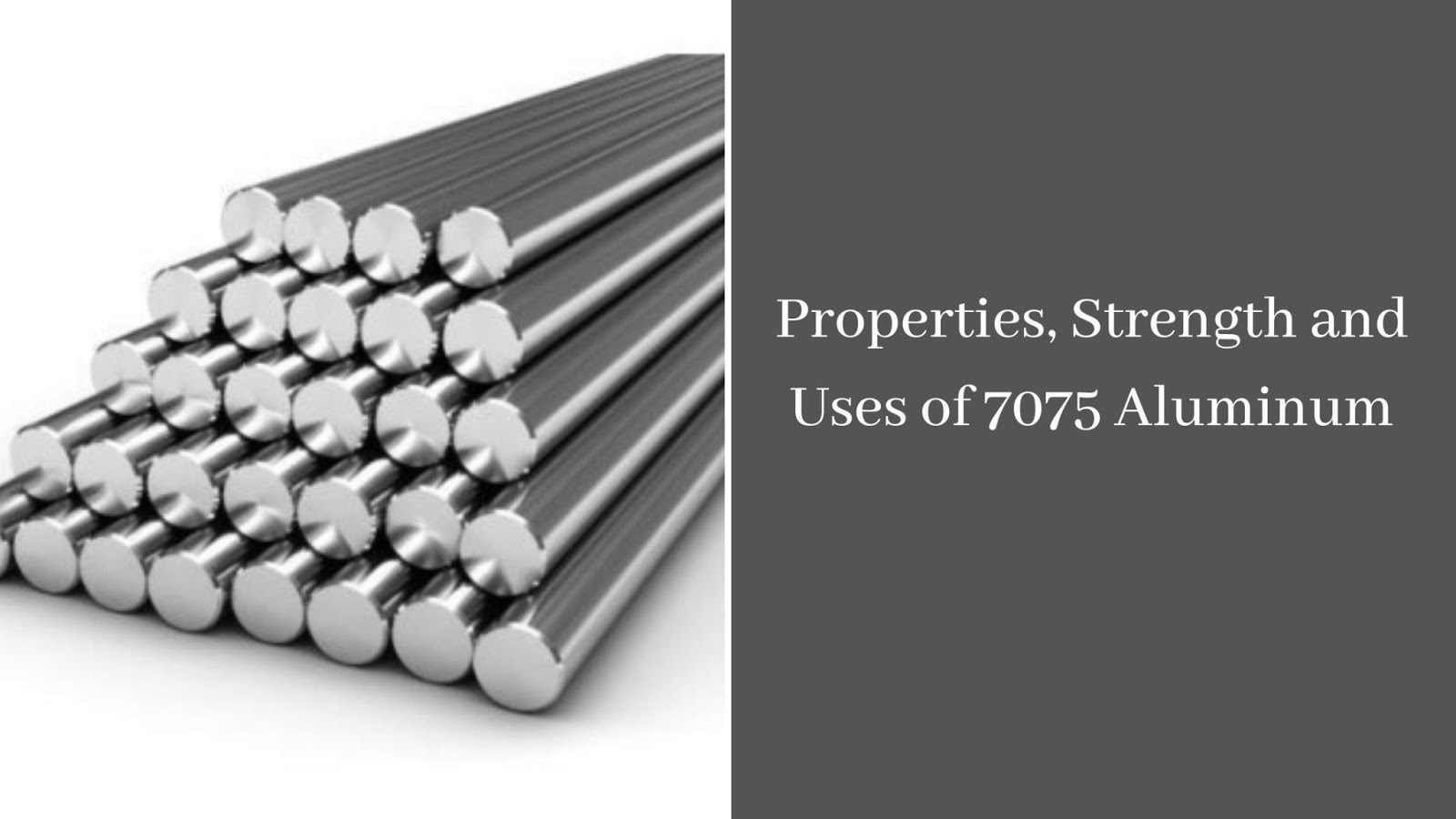Properties, Strength and Uses of 7075 Aluminum

Their strength and light weight make aluminum alloys suitable for a wide range of industrial applications. You can find 7075 aluminum and other aluminum alloys everywhere. The base metal in aluminum alloys is aluminum. Other metal is added to improve the qualities of aluminum. Alloys were made to enhance the strength, conductivity, resilience and other properties so that the material can deliver better performance in its existing applications and can be used in new applications. Aluminum is one of the most used metals. Therefore, it also has many useful alloys. Aluminum alloys come with a numbered-naming scheme. This numbered naming depends on the metal added to aluminum.
7075 aluminum is one such alloy. Industries using this alloy get it in the form of 7075 aluminum sheet.
7075 Aluminium Properties
The following table shows the composition of 7075 aluminum:
| Al | 90.0% |
| Zn | 5.6% |
| Mg | 2.5% |
| Cr | 0.23% |
| Cu | 1.6% |
The percentage of these metals can change depending on manufacturing factors. The density of the alloy is 0.102 lb/in³. The strength of the alloy makes it the best for high-stress situations. Though copper makes it more susceptible to corrosion, the alloy becomes strong and workable. Heat treatment/tempering further increases the strength of the alloy. This method uses heat to change the crystal structure of the metal. This increases the strength of the metal.
There are different methods for heat treatment of 7075 aluminum. This article covers T6 tempered 7075 aluminum alloy. 7075 aluminum obtained after each method has distinct characteristics and values.
The shear modulus and modulus of resistance of the alloy are 3900 ksi and 10,400 ksi respectively. The alloy shows significant resistance to deformation. Yield strength is one of the important properties of an alloy. Yield strength is the maximum stress that does not lead to the permanent deformation of the metal. The tensile yield strength of the alloy is 83,000 psi.
Another important property is the ultimate strength of the alloy. It is the maximum amount of stress a material can withstand before it becomes weak or breaks. For example, AISI 1018 Steel has an ultimate tensile strength of 440 MPa. The ultimate tensile strength of 7075 aluminum sheet is 572 MPa. Before the material weakness or breaks, it undergoes permanent deformation. This is a highly impressive ultimate tensile strength for a material of this density. 7075 aluminum has a shear strength of 331 MPa. The fatigue strength measures the ability of a material to withstand cyclical loading. The fatigue strength of this alloy is 159 MPa.
The following table is a summary of 7075 aluminum’s mechanical properties.
| Shear Modulus | 3900 ksi (26.9 GPa26.9 GPa) |
| Modulus of Elasticity | 10400 ksi (71.7 GPa) |
| Fatigue Strength | 23000 psi (159 MPa) |
| Shear Strength | 48000 psi (331 MPa) |
| Tensile Yield Strength | 73000 psi (503 MPa) |
| Ultimate Tensile Strength | 83000 psi (572 MPa) |
7075 Aluminium Applications
Low density and high strength make this alloy one of the best options for making parts that are subjected to heavy wear. Aircraft parts are made using this alloy. Aluminum 7075 alloy has the following major applications:
- Aerospace
- Defense applications
- Worm gears
- Regulating valve parts
- Missile parts
- Gears
- Shafts
- Aircraft fittings


